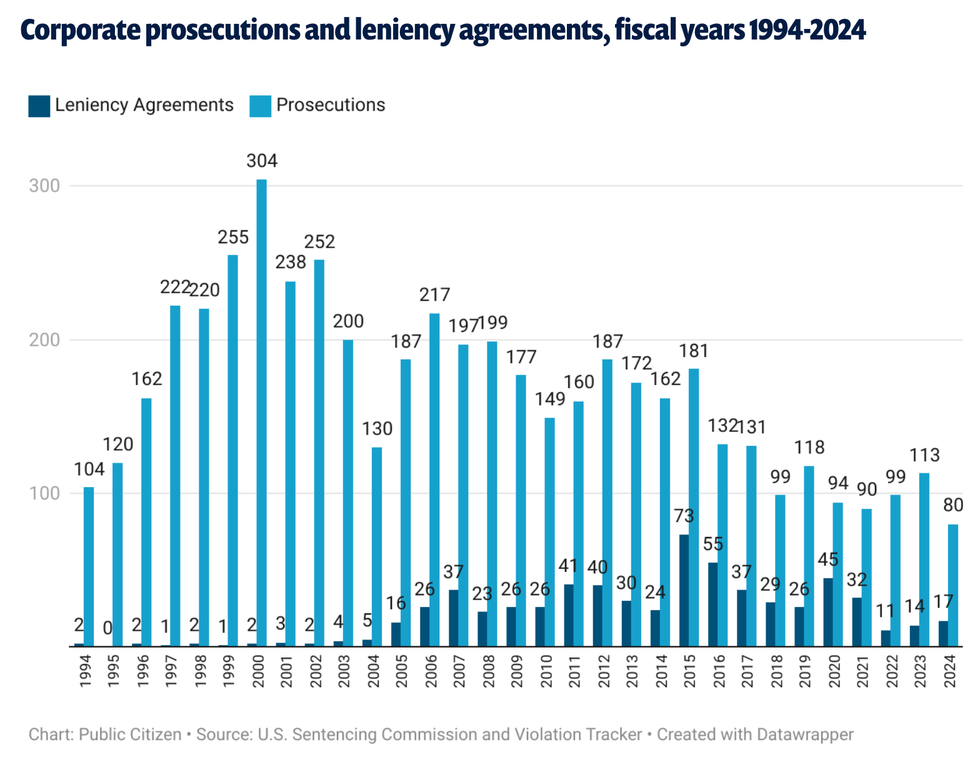"In addition to depriving rivals of the ability to compete, this exclusionary conduct substantially harmed Google's publisher customers, the competitive process, and, ultimately, consumers of information on the open web," said Brinkema in the 115-page decision.
U.S. Sen. Elizabeth Warren (D-Mass.) applauded DOJ lawyers and called the victory "the result of years of work to rein in tech companies' abuses."
Google's latest legal defeat, said the senator, shows that "Google is an illegal monopolist—and it's time to break up this tech giant."
Jonathan Kanter, former assistant attorney general in the DOJ's Antitrust Division, added that the company "is an illegal monopolist twice over."
"The company's near-total dominance of the online advertising market hurts media companies, rival search engines, social media companies, and anyone who consumes media on the internet."
Last August, U.S. District Judge Amit Mehta issued a landmark ruling in another antitrust case against Google, saying the company had illegally monopolized the online search and general text advertising markets.
Next week, Mehta is scheduled to consider whether to break up the company over its control of online searches. The DOJ has also called for a breakup of Google's advertising tech monopoly.
"Case by case, antitrust enforcers are taming the beasts of Big Tech," said Lee Hepner, senior legal counsel at the American Economic Liberties Project. "Yet another monumental win in the history of antitrust enforcement, this case in particular is a win for journalists, publishers, online content creators, and the distributed open web."
In the advertising tech case that was decided Thursday, the government argued last year that Google locked web publishers into using its software, harming websites that produce content that they make available for free online.
The result of Google's practices, said Sacha Haworth, executive director of the Tech Oversight Project, "is that our internet is less open and free, and civic discourse has irreparably been damaged by killing the local news we need to operate a vibrant democracy."
"This ruling is an unequivocal win for the American people that will help lower prices, increase competition, and lead to a better internet for everyone," said Haworth.
Jason Kint, CEO of the nonprofit trade association Digital Content Next, said Thursday's ruling underscores "the global harm caused by Google's practices, which have deprived premium publishers worldwide of critical revenue, undermining their ability to sustain high-quality journalism and entertainment."
"Today's decision," said Kint, "is a significant step toward restoring competition and accountability in the digital advertising ecosystem."
Emily Peterson-Cassin, corporate power director at Demand Progress Education Fund, said that "Google's illegal monopolies are blunting [the United States'] competitive edge in the tech industry" and called on the courts to take far-reaching action against the company.
"Our nation has grown prosperous and powerful because of competition," said Peterson-Cassin. "The company's near-total dominance of the online advertising market hurts media companies, rival search engines, social media companies, and anyone who consumes media on the internet. As one of the richest, most powerful companies in the history of humanity, a mere fine or slap on the wrist won't cut it. For the good of our nation and the health of our tech and media industries the government must force Google to sell its advertising technology division."





